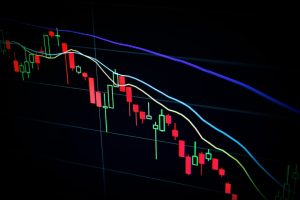Forex leverage, which is also known as margin trading, is a popular tool used by traders to increase their buying power and amplify their potential profits. However, in recent years, forex leverage has been reduced by regulators worldwide. In this article, we will explore the reasons behind this trend and examine the impact it has had on the forex market.
Firstly, it is important to understand how forex leverage works. When a trader opens a position, they are required to put down a certain amount of money as collateral, known as margin. The leverage ratio determines how much buying power the trader has. For example, a leverage ratio of 100:1 means that for every $1 of margin, the trader can control $100 worth of currency.
The use of leverage increases the potential profits of a trade, but it also exposes the trader to greater risk. If the trade moves against them, the trader could lose more than their initial investment. This is known as a margin call, where the trader is required to deposit additional funds to cover the losses.
One of the main reasons behind the reduction in forex leverage is the increased focus on investor protection by regulators. The high levels of leverage offered by some brokers were deemed to be too risky for inexperienced traders, who could easily lose large sums of money.
In the United States, the Commodity Futures Trading Commission (CFTC) introduced new regulations in 2010 that limited the maximum leverage ratio to 50:1 for major currency pairs and 20:1 for other currencies. In Europe, the European Securities and Markets Authority (ESMA) implemented similar restrictions in 2018, limiting the leverage ratio to 30:1 for major currency pairs and 20:1 for other currencies.
Another reason for the reduction in forex leverage is the increased scrutiny of brokers by regulatory authorities. Regulators are now more closely monitoring brokers to ensure that they are operating in a fair and transparent manner. This includes checking that brokers are not offering excessive levels of leverage that could be harmful to their clients.
Furthermore, the reduction in forex leverage has been driven by the increased volatility in the forex market. Market events such as Brexit and the COVID-19 pandemic have caused significant fluctuations in currency values, making it harder for traders to predict market movements. High levels of leverage can amplify the impact of these market movements, increasing the risk of margin calls and significant losses.
The impact of the reduction in forex leverage has been felt by both traders and brokers. Traders who were accustomed to using high levels of leverage have had to adjust their trading strategies and risk management techniques. Brokers have also had to adapt to the new regulations, which have reduced their profitability and increased their compliance costs.
In conclusion, the reduction in forex leverage has been driven by a combination of factors, including increased focus on investor protection, increased regulatory scrutiny of brokers, and increased market volatility. While the reduction in leverage may limit the potential profits of traders, it also helps to reduce their risk exposure. Ultimately, the goal of these regulations is to create a safer and more transparent forex market for all participants.





